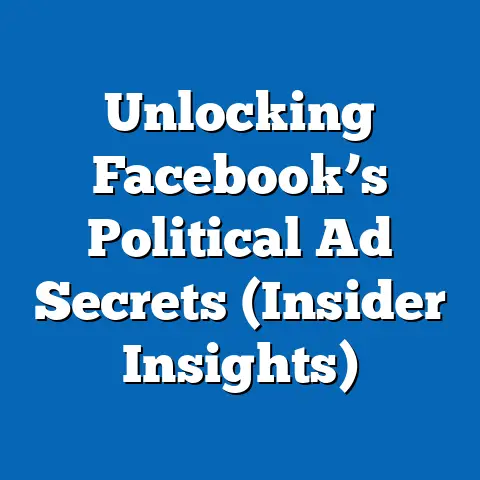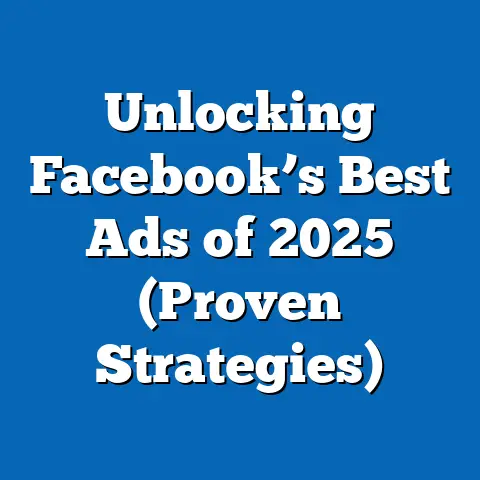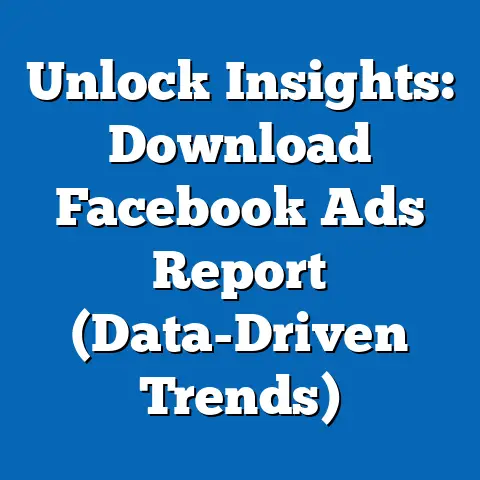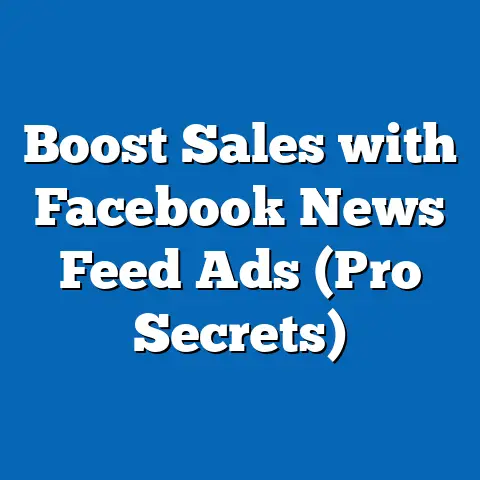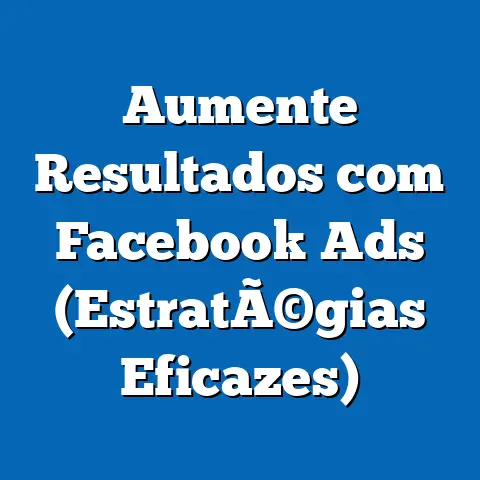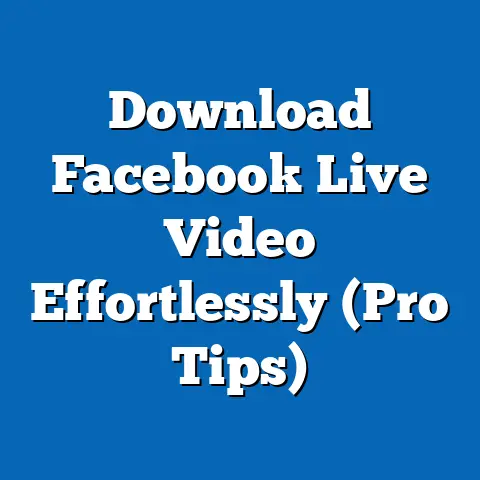Run Ads on Facebook Without a Page? (Expert Insights)
I remember the first time I sat in front of my computer, staring at the Facebook Ads Manager, overwhelmed but electrified by the possibilities.
My heart raced as I clicked through the options, envisioning my small business reaching customers across the globe.
I had just launched my first small online store selling handmade jewelry.
I spent weeks perfecting my product photography and crafting what I thought were killer ad copy.
Little did I know, I was about to uncover a hidden gem in the world of Facebook advertising – something I didn’t even know was possible at the time: the ability to run ads without needing a traditional Facebook Page.
Back then, I thought a Facebook Page was as essential as the air I breathed for running ads.
It was the foundation, the storefront, the digital handshake.
But as I delved deeper into the platform, experimenting, failing, and occasionally succeeding, I realized that there were alternative routes, secret passages in the advertising labyrinth.
This realization opened up a whole new world of possibilities and strategies, and it’s what I want to share with you today.
Can you really run Facebook ads without a page?
The answer, surprisingly, is yes.
But it’s not always straightforward, and it’s definitely not for everyone.
This article will guide you through the ins and outs of this unconventional approach, exploring why you might want to consider it, how to technically make it happen, and what pitfalls to avoid.
We’ll dive into case studies, best practices, and expert insights, giving you a comprehensive understanding of Facebook advertising beyond the traditional page-centric model.
The Basics of Facebook Advertising
Facebook advertising has become a cornerstone of modern digital marketing.
With billions of users actively engaging on the platform every day, it offers an unparalleled opportunity to reach a vast and diverse audience.
Think about it: where else can you target specific demographics, interests, and behaviors with such precision?
I’ve seen small businesses explode in growth thanks to well-targeted Facebook ad campaigns, and I’ve also seen large corporations leverage the platform to build brand awareness and drive massive sales.
Traditionally, running ads on Facebook required a Facebook Page.
This Page served as the public face of your business, the place where potential customers could learn more about your brand, interact with your content, and ultimately, convert into paying customers.
The Page was linked to your ad account, and all your ads would appear to be coming from that Page.
This made perfect sense.
It provided transparency and allowed users to easily verify the legitimacy of the advertiser.
However, the digital landscape is constantly evolving, and with it, the needs and strategies of advertisers.
This is where the concept of running ads without a page comes into play.
It’s a less conventional approach, often misunderstood, but it offers unique advantages in certain situations.
We’re not talking about bypassing the rules or engaging in shady practices.
We’re talking about leveraging the platform’s capabilities in a different way to achieve specific goals.
Why Would Someone Want to Run Ads Without a Page?
The question often arises: Why would anyone want to run Facebook ads without a page?
It seems counterintuitive, right?
After all, the Facebook Page is supposed to be the cornerstone of your brand’s presence on the platform.
However, there are several valid reasons why someone might choose this path.
1. Privacy Concerns and Anonymity:
In today’s world, privacy is a growing concern.
Some individuals or businesses might want to run ads without explicitly revealing their identity or brand.
Perhaps they’re testing a new product idea and don’t want to publicly associate it with their existing brand.
Or maybe they’re promoting a sensitive topic and prefer to maintain a degree of anonymity.
I’ve personally worked with clients who were launching niche products in competitive markets and wanted to gauge initial interest without alerting their competitors to their plans.
2. Testing Products or Services:
Before investing significant resources into building a full-fledged brand presence, many entrepreneurs prefer to test the waters.
Running ads without a page allows them to quickly validate their product or service idea without the overhead of creating and managing a Facebook Page.
This can be a cost-effective way to gather data and determine if there’s a viable market for their offering.
3. Temporary Campaigns:
Sometimes, you only need to run ads for a short-term promotion, event, or campaign.
Creating a Facebook Page solely for this purpose might seem like overkill.
Running ads without a page allows you to achieve your objectives without the need for long-term maintenance and engagement.
I’ve seen this work particularly well for local events, such as concerts or festivals, where the focus is on driving ticket sales rather than building a lasting brand presence.
4. Freelancers and Affiliate Marketers:
Freelancers and affiliate marketers often promote products or services on behalf of other businesses.
They might not have a dedicated Facebook Page for each offering they promote.
Running ads without a page allows them to efficiently drive traffic and generate leads without the need for a complex setup.
This is especially useful when they’re working with multiple clients or promoting a diverse range of products.
5. Niche or Sensitive Topics:
Certain topics, such as adult products or controversial political campaigns, might not be suitable for a traditional Facebook Page.
Running ads without a page allows advertisers to reach their target audience without the potential backlash or scrutiny that could come with a public-facing Page.
Example Scenarios:
- A freelancer promoting a client’s online course on a specific skill, using targeted ads to reach potential students.
- An event organizer advertising a local music festival, driving ticket sales through targeted ads to residents in the surrounding area.
- An affiliate marketer promoting a weight loss product, using targeted ads to reach individuals interested in fitness and healthy living.
- A small business owner testing a new line of eco-friendly cleaning products, using targeted ads to gauge interest and gather feedback before launching a full-scale marketing campaign.
Understanding Facebook Ad Accounts and Business Manager
Before diving into the technical details of running ads without a page, it’s crucial to understand the role of Facebook Ad Accounts and Business Manager.
These are the foundational elements that underpin all Facebook advertising activities.
Facebook Ad Accounts:
An Ad Account is essentially your payment method and tracking hub for all your Facebook ad campaigns.
It’s where you set your budget, define your target audience, create your ads, and analyze your results.
Every advertiser needs at least one Ad Account to run ads on Facebook.
Facebook Business Manager:
Business Manager is a more comprehensive tool designed for businesses and agencies that manage multiple Ad Accounts, Pages, and users.
It allows you to centralize your advertising efforts, assign roles and permissions to team members, and track performance across different accounts.
Creating an Ad Account Without a Page:
While it was previously possible to create an Ad Account directly without linking it to a Page, Facebook has tightened its policies.
Now, you typically need a Page to create an Ad Account through Business Manager.
However, there are still ways to run ads without actively using or promoting that Page.
Using a Personal Profile to Run Ads:
Contrary to popular belief, you can’t directly run ads from your personal Facebook profile.
All ads must be associated with an Ad Account, which, as mentioned, is typically linked to a Page.
However, you can use your personal profile to access Business Manager and manage your Ad Accounts.
Debunking Myths and Misconceptions:
- Myth: You can run ads directly from your personal profile.
- Reality: All ads must be associated with an Ad Account, which is typically linked to a Page.
- Myth: You need a large following on your Page to run effective ads.
- Reality: The size of your Page’s following is not directly correlated with the performance of your ads.
Targeting and ad quality are far more important. - Myth: Running ads without a page is against Facebook’s policies.
- Reality: It’s not inherently against Facebook’s policies, as long as you comply with all advertising guidelines and terms of service.
Alternative Strategies for Ad Placement Without a Page
While a Facebook Page is the traditional route for running ads, there are alternative strategies you can employ to achieve your advertising goals without relying on a dedicated Page.
1. Utilizing Personal Profiles for Ad Campaigns (Indirectly):
As mentioned earlier, you can’t directly run ads from your personal profile.
However, you can leverage your personal profile to manage your Ad Accounts and create ads that don’t explicitly promote a Page.
For example, you can create lead generation ads that collect contact information directly from users, without requiring them to visit a Page.
2. Leveraging Influencer Partnerships:
Influencer marketing has become a powerful force in the digital landscape.
Partnering with influencers who have a large and engaged following can be an effective way to promote your products or services without needing a dedicated Page.
The influencer can create sponsored content that features your brand, reaching their audience directly.
I’ve seen this strategy work incredibly well for brands targeting younger demographics, who are more likely to trust recommendations from influencers than traditional advertising.
3. Exploring Facebook Groups:
Facebook Groups are communities of people who share common interests.
Joining relevant Groups and engaging with members can be a great way to promote your brand organically.
While you can’t directly run ads within Groups without a Page, you can create valuable content that drives traffic to your website or landing page.
This can be a more subtle and authentic way to reach your target audience.
Expert Insights:
“Influencer marketing is no longer a trend; it’s a core component of many successful advertising strategies.
By partnering with the right influencers, you can tap into their established audience and build trust and credibility for your brand.” – Neil Patel, Digital Marketing Expert
“Facebook Groups offer a unique opportunity to connect with your target audience on a personal level.
By providing valuable content and engaging in meaningful conversations, you can build a loyal community around your brand.” – Mari Smith, Social Media Strategist
The Technical Aspects of Ad Creation
Now that we’ve explored the alternative strategies, let’s delve into the technical aspects of creating Facebook ads without a page.
While the process is similar to creating ads with a Page, there are a few key differences to keep in mind.
1. Accessing Ads Manager and Setting Up an Ad Account:
The first step is to access Facebook Ads Manager, which is the central hub for creating and managing your ad campaigns.
You can access Ads Manager through your personal Facebook profile or through Business Manager.
If you don’t already have an Ad Account, you’ll need to create one.
2. Choosing the Right Ad Format and Targeting Options:
Facebook offers a wide range of ad formats, including image ads, video ads, carousel ads, and lead generation ads.
When running ads without a page, lead generation ads are often the most effective, as they allow you to collect contact information directly from users without requiring them to visit a Page.
Targeting is crucial for the success of any ad campaign.
Facebook allows you to target users based on demographics, interests, behaviors, and more.
Take advantage of these targeting options to reach the most relevant audience for your ads.
3. Crafting Compelling Ad Copy and Selecting Visuals:
Your ad copy and visuals are what will capture the attention of your target audience.
Make sure your ad copy is clear, concise, and compelling, and that your visuals are high-quality and relevant to your message.
Use strong calls to action to encourage users to take the desired action, such as signing up for a newsletter or requesting a quote.
4. Navigating Facebook’s Ad Policies:
It’s essential to familiarize yourself with Facebook’s advertising policies before launching your ad campaigns.
These policies outline what types of content are allowed and prohibited on the platform.
Violating these policies can result in your ads being disapproved or your Ad Account being suspended.
Tips for Compliance:
- Avoid making misleading or deceptive claims in your ads.
- Ensure that your ads are relevant to your target audience.
- Comply with all copyright and trademark laws.
- Be transparent about your data collection practices.
Real-World Case Studies
To illustrate the potential of running ads on Facebook without a page, let’s take a look at a few real-world case studies.
Case Study 1: The Freelance Graphic Designer
Sarah, a freelance graphic designer, wanted to promote her services to small businesses in her local area.
She didn’t have a dedicated Facebook Page for her freelance business, but she created a lead generation ad campaign that targeted business owners in her city.
The ad featured examples of her work and offered a free consultation.
Within a few weeks, Sarah generated several qualified leads and landed two new clients.
Case Study 2: The Event Organizer
John, an event organizer, was promoting a local music festival.
He didn’t want to create a Facebook Page specifically for the event, so he ran a targeted ad campaign that reached residents in the surrounding area.
The ad featured a captivating video of past festivals and offered a discount on ticket purchases.
The campaign resulted in a significant increase in ticket sales and helped John reach a wider audience.
Case Study 3: The Affiliate Marketer
Maria, an affiliate marketer, was promoting a weight loss product.
She didn’t have a dedicated Facebook Page for the product, so she created a series of targeted ads that reached individuals interested in fitness and healthy living.
The ads featured testimonials from satisfied customers and offered a discount on the product.
The campaign generated a significant amount of traffic to the product’s website and resulted in several affiliate sales.
Expert Commentary:
“These case studies demonstrate that running ads on Facebook without a page can be a viable strategy for achieving specific advertising goals.
However, it’s important to carefully plan your campaigns, target the right audience, and create compelling ad copy and visuals.” – Amy Porterfield, Online Marketing Expert
Measuring Success and Analyzing Results
Regardless of whether you’re running ads with or without a page, tracking ad performance is crucial for optimizing your campaigns and maximizing your return on investment (ROI).
Setting Up Conversions:
Conversions are actions that you want users to take after seeing your ads, such as signing up for a newsletter, requesting a quote, or making a purchase.
Setting up conversion tracking allows you to measure how many users are taking these actions and to optimize your ads accordingly.
Tracking Engagement:
Engagement metrics, such as likes, comments, and shares, can provide valuable insights into how users are interacting with your ads.
Monitoring these metrics can help you identify which ads are resonating with your target audience and which ones need improvement.
Analyzing Metrics Using Facebook Analytics:
Facebook Analytics provides a wealth of data about your ad campaigns, including demographics, interests, behaviors, and more.
Analyzing this data can help you refine your targeting, improve your ad copy, and optimize your campaigns for maximum performance.
Adjusting Strategies Based on Performance Data:
The key to successful advertising is continuous optimization.
By regularly tracking and analyzing your ad performance, you can identify areas for improvement and adjust your strategies accordingly.
This might involve refining your targeting, tweaking your ad copy, or experimenting with different ad formats.
Conclusion: The Future of Facebook Advertising Without Pages
In conclusion, running ads on Facebook without a page is not only possible but can be an effective strategy in certain scenarios.
Whether you’re a freelancer, an event organizer, or an affiliate marketer, this approach can offer unique advantages in terms of privacy, flexibility, and cost-effectiveness.
The digital advertising landscape is constantly evolving, and platforms like Facebook are continuously adapting to user needs.
As technology advances and consumer preferences shift, we can expect to see even more innovation in advertising methods.
It’s crucial for advertisers to stay informed about new tools and strategies and to be willing to experiment with different approaches.
The future of Facebook advertising is likely to be more personalized, more data-driven, and more focused on delivering value to users.
By embracing these trends and adapting your strategies accordingly, you can stay ahead of the curve and achieve your advertising goals.
So, while a Facebook Page remains a valuable asset for many businesses, remember that it’s not the only path to success on the platform.
Explore the alternative strategies, experiment with different approaches, and find what works best for your unique needs and objectives.
The world of Facebook advertising is vast and dynamic, and there’s always something new to discover.

